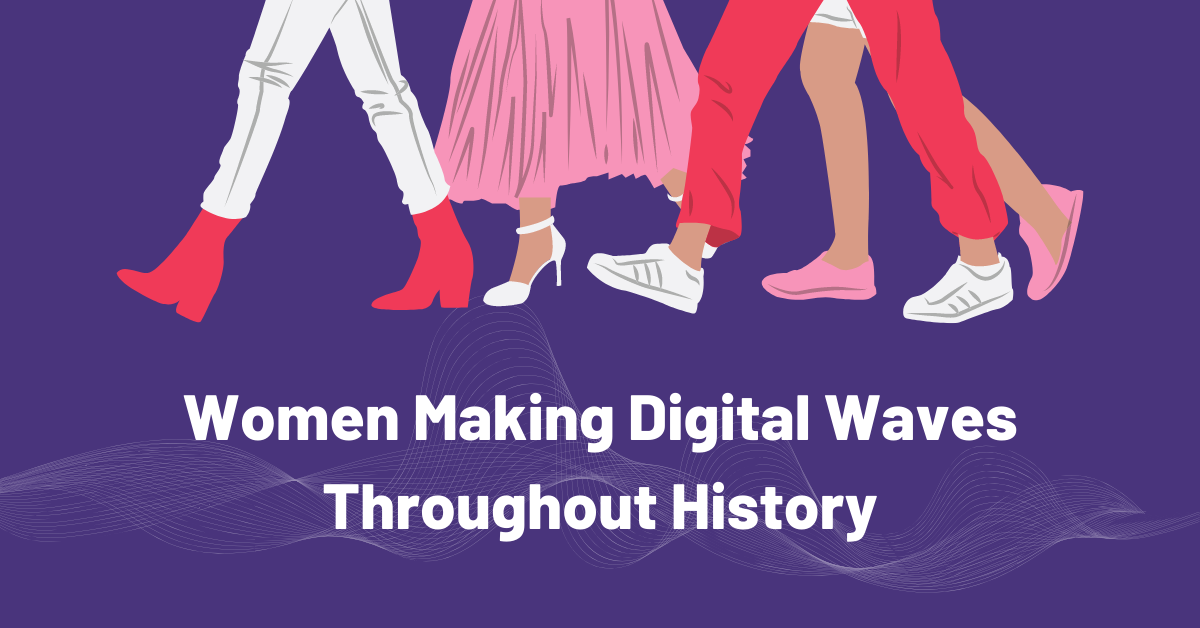

As we enter March, let’s take a moment to recognize Women’s History Month and celebrate the many contributions that women have made throughout history. Women have been at the forefront of innovation and have played a pivotal role in shaping the development of technology and other fields.
It’s crucial that we acknowledge these achievements, honor the women who made them, and inspire future generations to pursue careers in STEM. In recognition of these achievements, we want to highlight a few women who have made significant contributions to the world of technology.
Since 1987, the United States has formally recognized March as National Women’s History month. The month-long commemoration began with Women’s History Day in 1978, formed by the school district of Sonoma, California. A vast majority of students celebrated with essay competitions, presentations, ending with a parade held in Santa Rosa. This caught national attention and was backed by President Jimmy Carter, who first dedicated the week of March 8th as National Women’s History Week. Soon after, Congress establishes this as a national observance and the rest is history!
There have been plenty of extraordinary women that have developed or invented great work, but have been consistently neglected. Yes, we all celebrate and acknowledge women during the month of March, but we should honor these women by praising them often and the legacies they leave behind – without which, could not have been possible in advancing the technologies we use today.
There are so many iconic women with amazing accomplishments that we simply cannot list all of them, but today we celebrate the top 5 women who paved the way in the tech industry.
Hedy Lamarr was an Austrian-born actress and inventor who co-invented the frequency-hopping spread spectrum (FHSS) technology, which is now used in wireless communication systems. Lamarr’s invention was ahead of its time, and she was not widely recognized for her technological contributions until later in her life.
Deborah Estrin is a computer scientist and entrepreneur who is known for her work in the field of mobile health (mHealth). Estrin has founded several startups in the mHealth space and has been recognized for her contributions to the field with awards such as the Anita Borg Institute Women of Vision Award.
Katherine K. Chen is a computer scientist known for her work in artificial intelligence and human-computer interaction. Chen has developed several innovative technologies, including a social robot that can help people with an autism spectrum disorder to develop social skills.
Maria Klawe is a computer scientist and mathematician, the current President of Harvey Mudd College. Klawe has advocated for diversity and inclusion in the tech industry, and she has worked to increase the representation of women and underrepresented groups in computer science.
Margaret Hamilton is a computer scientist and software engineer who worked on the Apollo space program. Hamilton’s work on the software that helped guide the Apollo spacecraft to the moon was crucial to the mission’s success, and she has been recognized with several awards for her contributions to the field.
Women’s History Month in March is a valuable opportunity to celebrate and recognize the countless contributions made by women throughout history. Women have played a crucial role in shaping the development of technology and other fields, leading the way in innovation and pushing boundaries.

Acknowledging these accomplishments can inspire future generations of women to pursue careers in STEM fields and continue to positively impact the world around us.
The month of March is a time to reflect on the role of women in our industry and reaffirm our commitment to celebrating their role every day. We must continue to celebrate women across all sectors by vocalizing their achievements and celebrating their contributions. This quote from Psychologist Penelope Lockwood helps to affirm this:
“Outstanding women can function as inspirational examples of success, illustrating the possible achievements of women around them. They demonstrate that it is possible to overcome traditional gender barriers, indicating to other women that high levels of success are indeed attainable.”


